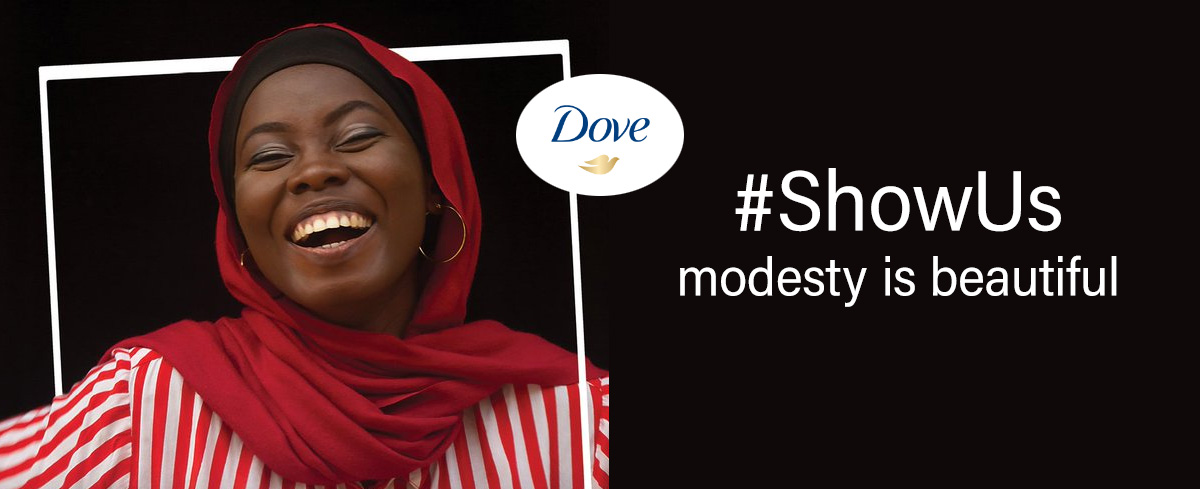Dove’s latest campaign, which is designed to help women feel more represented in media and advertising, has suggested the Islamic definition of modesty is “beautiful.”
Getty Images has also jumped on board for the #ShowUs project to produce the largest photo library “created by women and non-binary individuals to shatter beauty stereotypes.” The goal of the campaign is to offer media and advertisers a “more inclusive vision of beauty.”
One of the adverts used to promote the project features a Muslim woman wearing a hijab. Coupled with the image is the caption, “#ShowUs that modesty is beautiful.”
Well done @Dove appropriating a cloth that is used to subjugate women. Millions around the world have been forced into it because dare they try to go free without it.
Why does modesty depend entirely on women? Why is modesty beautiful?#FreeFromHijab pic.twitter.com/bLcoCaWNlh— Zara Kay (@zarakayk) May 24, 2019
70% of women not feeling represented? The women fighting *enforced* hijab in some Muslim majority countries are, in too many cases, literally screaming for someone to notice. What's possible? How about the possibility of feeling the wind in your hair without risking arrest?
— Ian Bellis (@Ian_in_OH) May 25, 2019
Understandably, the advertisement has angered many. Sky News commentator Rita Panahi tweeted, stating she’ll never purchase Dove again: “Makes mental note never to purchase Dove again. Embracing tools of oppression to sell soap. Gross.”
“Well done, Dove,” the founder of Faithless Hijabi said. “Appropriating a cloth that is used to subjugate women. Millions around the world have been forced into it because dare they try to go free without it. Why does modesty depend entirely on women? Why is modesty beautiful?”
Earlier this year, Iranian activist and journalist, Masih Alinejad, slammed Western women for suggesting Islamic headscarves are a cultural symbol worth celebrating. “Let me be clear,” Alinejad said. “Calling a discriminatory law part of our culture is an insult to our nation!”
The problem is, we no longer have a clear definition of what it means to be modest. Modesty, rightly defined, is in fact beautiful. The Apostle Paul urged women to “adorn themselves in respectable apparel, with modesty” (1 Tim. 2:9). So, the question is, how do we define the term? What is modesty?
Simply put, modesty is an attitude of humility and a state of being which outwardly influences the way we, both male and female, present ourselves to others. Because clothing is one of the most obvious outward expressions, modesty is often spoken about in the context of how individuals ought to dress.
Most of us have some idea of what’s appropriate or inappropriate for public viewing. Some people might like the idea of near-naked women walking the streets, but there’s no doubt their tune would change if they were to think of their daughters doing the same thing.
We support laws that prevent grown adults from parading about naked in public spaces. In some sense, we all support “modesty laws”, but we’re often vague on what modesty actually means, and to what extent it should be forced on us by others.
Modesty, rightly defined, is about preserving and protecting the personhood of the individual, rather than that person being reduced to a mere object of someone else’s fantasy.
In that sense, modesty is good. Very good. But that doesn’t mean everything carried out in the name of “modesty” is good, or even modest. In some cultures, the idea of modesty has been so twisted and distorted that instead of protecting and preserving a woman’s humanity, her humanity is almost unrecognisable.
In the name of modesty, women are essentially dehumanised when they’re forced to cover close to every unique feature which expresses their individuality, their own beauty, and their God-given femininity.
On the one hand, you uncover a person and society quickly reduces that person to an object. The multi-billion-dollar porn industry is a testament to that. On the other hand, you cover a person to the point where their uniqueness, humanity, beauty and femininity are unrecognisable, and society quickly reduces that person to something less than human.
We should reject both extremes. True modesty protects the personhood of the individual from being both objectified and de-humanised.























